A tourism tax in Wales could be in place as early as 2027, according to a Welsh Government document.
The controversial plan to charge visitors a levy to stay in Wales would also include Welsh people, according to a promotional leaflet posted online by the Welsh Government, entitled ‘A visitor levy for Wales: A contribution for a sustainable future’.
No price has yet been set, but the document says that if the proposal is given support, local councils will be able to set a tariff for overnight stays, with the money raised going towards ‘sustainable tourism, helping to grow our economy, support our communities’.
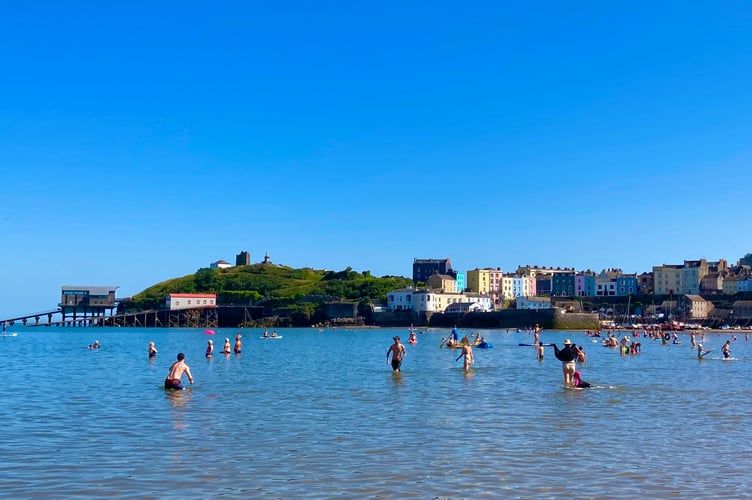
The document states: ‘We believe it is fair and reasonable to ask visitors to make a small contribution towards the wider costs of tourism.
‘Our intention is to foster a sense of shared responsibility between residents and visitors, to protect, and invest in, local areas.
‘We know that tourism plays a vital role in supporting local economies.
‘But unbalanced, poorly supported tourism can also put pressure on local communities and undermine the high-quality amenities we all want to experience and to offer our visitors.’
The tourist tax would also apply to Welsh people, with the document adding: ‘If adopted by a local authority, the levy will apply to visitors staying in overnight accommodation, whether they have travelled from within Wales or elsewhere.’
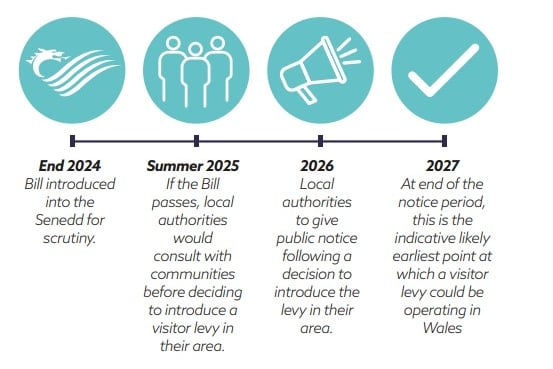
The price visitors are charged will however have to be approved by Senedd members.
The Welsh Government plans to bring the proposal to the Senedd at the end of 2024, with a tourist tax potentially being in place in 2027.
The Welsh Government argues that tourist taxes are commonplace across Europe, with the document adding: ‘Visitor levies are common across the world and more tourist destinations, including in the UK, are introducing them to help fund the public services and infrastructure that are integral to the visitor experience.
‘There is limited evidence to suggest visitor levies have a negative economic impact.
‘Many of us will have paid a levy while abroad without noticing. Destinations such as Majorca, Amsterdam, Marseille, and Malta use funds from their levies to support a healthy visitor economy for everyone, protecting the infrastructure and services on which visitors depend.
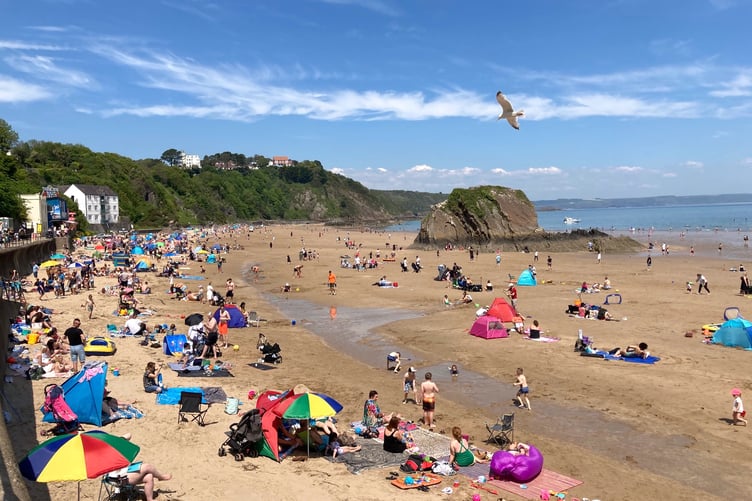
‘If you have booked a holiday to one of these popular destinations, you will be contributing to their tourism industry in the form of a levy.’
Manchester currently operates a tourist tax, with visitors charged £1 per person per night for staying in hotels and apartments in the city centre and Salford.
Reacting to the document, Welsh Conservative Shadow Tourism Minister, Tom Giffard MS said: "The Labour Government have failed to attract visitors to Wales since their harmful 182-day regulations came into force and plans to introduce a toxic tourism tax will only make things worse for the sector.
“Labour’s plans are particularly unwelcome at a time where they are already hitting Wales with their blanket 20mph limits that will damage the Welsh economy by up to £9 billion and harmful 182-day regulations driving self-catering accommodation providers out of business.
“The Labour Government’s obsession with taxing the tourism industry to reduce visitor numbers, as opposed to enhancing the tourism sector is the wrong approach for Wales. That’s why I’ve submitted a topical question in the Senedd today on the issue, and to call on Labour to scrap these ludicrous plans.
One tourism operator, opposed to the levy is Ashford Price, chair of ‘Dan Yr Ogof’ The National Showcaves Centre for Wales, who has been involved in Welsh Tourism for over 50 years.
“For over 20 years the responsibility for tourism has been devolved to the Welsh Government - hence, now might be an appropriate time to review just how successful the Welsh Government has been over these years and analyse the latest results for the 2023 season,” he remarked.
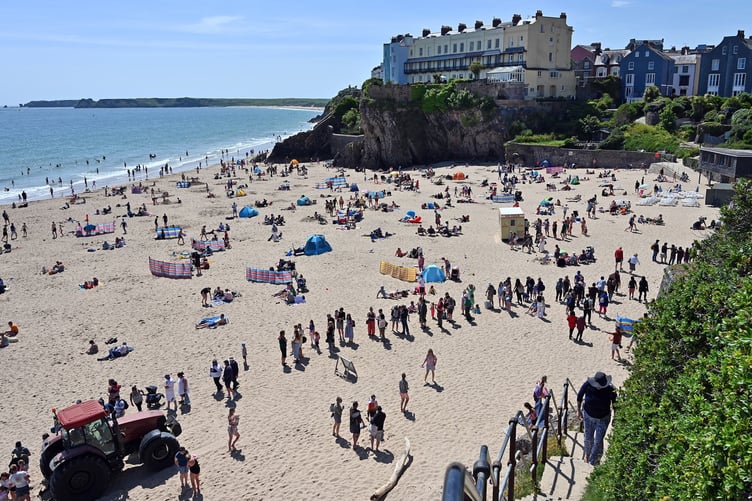
“Within a few years of the Welsh Government taking control of tourism the Wales Tourist Board, which included representatives from the tourist industry was abolished. This was followed by the closure of the four Regional Tourism Partnership’s throughout Wales, which again had tourism operators’ involvement.”
Following these closures everything is now controlled centrally by Welsh Government, with Ashford pointing to the following results:
• The number of overseas Visitors to Wales has dropped by a third in the last three years, and the amount that tourists spend on their visit to Wales has also dropped by a massive 24%.
• Of the 41 million international holidaymakers that came to Great Britain in pre-Covid times only I million of them eventually visited Wales i.e. just 2% (however, 20 years ago Wales was already getting I million overseas visitors so in the last 20 years Welsh Government has increased overseas visitor numbers by 0%)
• 1 million overseas visitors to Wales; Scotland by comparison gets approximately 3.46 million international visitors a year.
• GB residents took 2.788 million leisure day trips in 2022. However, again Wales only attracted 6% of this total.
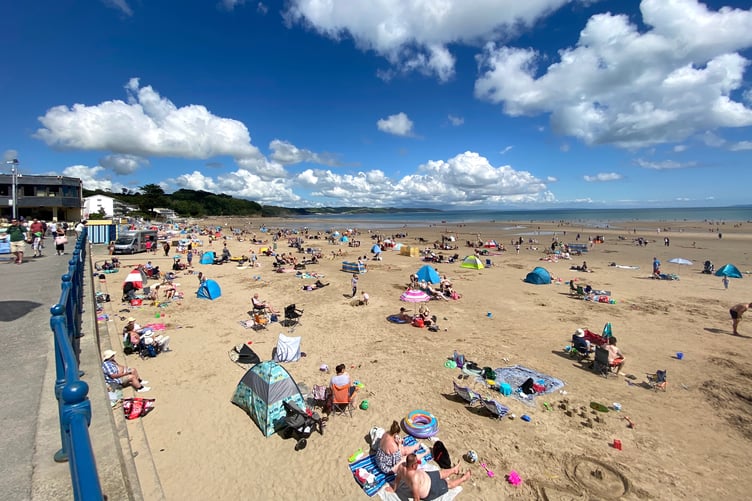
“A strong brand/image of a country is vital to encourage tourism to Wales especially in our modern social media era,” he continued.
“When you think of Scotland and Ireland the following springs to mind - Tartans, Guinness, bagpipes, Irish dancing, scenery, lochs, shamrocks, Irish pubs, Leprechauns, New Year’s Eve celebrations, Loch Ness Monster, golf, fishing, etc., etc.,
“However, the present brand image of Wales in a recent visitor survey was - rain, sheep, rugby, poor roads network. Hardly inspirational reasons to visit Wales!
However, why do we not promote our amazing 600 castles, coastal pathways, the Dragon flag, historic legends, spectacular landscapes, etc?
“The question also needs to be asked if Welsh people really want a thriving tourist industry?
If the answer is yes, the whole Nation and the Welsh Government, needs to back Welsh tourism as in some parts of Wales tourism is the only economic driver, and if tourism is allowed to decline there is nothing to take its place.
“What is the Welsh Government doing to assist Welsh tourism at a time when there is a cost-of-living crisis? The answer sadly is not a lot.
The ‘’staycation holiday’ era is a thing of the distant past, and millions of holiday makers are now reverting back to their traditional overseas holidays.
“A Welsh tourism tax is on the way that could add another £50 to your bill if you holiday in Wales. It is not generally recognised that Welsh people will also have to pay this tax if they take their holidays in Wales.”
Ashford stated that visitor numbers to Welsh Association of Visitor attraction sites between January 1 and August 31 this year, compared to the same dates in 2022 revealed 45% of attractions saw less visitors.
“The new Welsh Governments 182 day booking law requires all self-catering operators in Wales to book their premises for 182 days a year. For the majority 182 days of bookings is simply unobtainable especially in rural areas,” he commented.
“On top of this many operators are also reporting that they have had a poor year.
“In the most recent self-catering survey 42% of operators have placed or are considering putting their self-catering businesses up for sale. In the same survey only 25% of self-caterers think they will hit the 182 days of bookings required to stay in business rates this year.
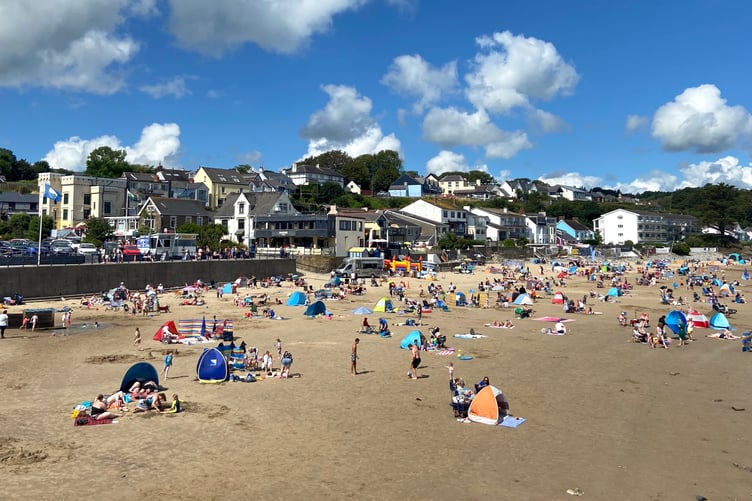
“Caravan and camp sites in Wales have also had a poor summer with 48% of providers seeing fewer visitors.
“The activity sector in Wales noted that 62% of their members reported a reduction on last summer’s figures. Welsh serviced accommodation and hospitality were also 39% down on visitor numbers when compared to last year.”
The Welsh Government’s proposal to reduce the school summer holidays from the traditional 6 weeks has also been criticised.
“These vital summer 6 weeks account for over 55% of his company’s yearly tourism turnover, and this situation would apply to many other attractions in Wales,” said Ashford.
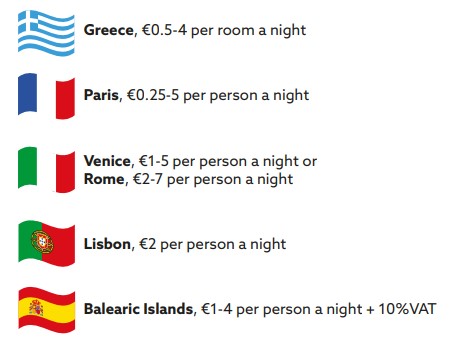
“Finally, what should also be causing alarm is that 25% of all tourism businesses are not confident, or not at all confident, about running their businesses profitably this year, and two in five (40%) of Welsh tourism businesses say they had fewer customers this summer than in the same period last year.
“Owing to the proven resilience of tourism operators in Wales they will stand up to these challenges.
“However, if more anti-tourism laws are forthcoming, then it would be appropriate to compare Welsh tourism to a patient in an intensive care ward with Dr. Drakeford standing by to administer the last rites!” he added.



.jpeg?width=209&height=140&crop=209:145,smart&quality=75)
Comments
This article has no comments yet. Be the first to leave a comment.